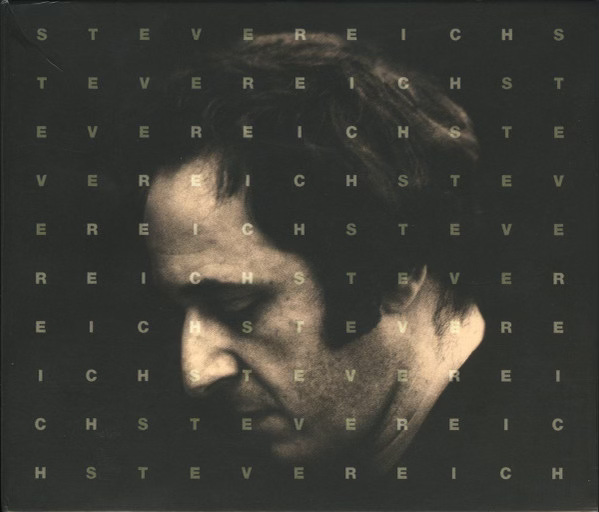50 Years of Decline and Fall
"These motherfuckers sold the world, and we didn’t even get a lousy t-shirt"
If you haven’t yet seen the 50 Years of SNL Music documentary, it’s well worth your time. It’s well made and has an extraordinary opening montage that edits together multiple performances into a medley of simultaneous songs that’s really something to see. The doc is of course promotional, meant to showcase the huge range of music that’s been on SNL, but it reveals something deeper that I’m pretty sure the producers never noticed, or else worked hard to ignore: as the pace and interest of the story gradually bog down as it approaches 2025, it outlines the decline of Saturday Night Live itself from an adventurous and experimental cultural endeavor into the kind of self-satisfied and self-preserving institution that has abandoned any values about American culture as a whole.
SNL debuted October 11, 1975, and Billy Preston was the musical guest. The first season also had Gil Scott-Heron, Betty Carter, and the Preservation Hall Jazz Band, along with stylistically individual pop artists like Phoebe Snow and Leon Redbone. I saw all these shows, and was literally introduced to Scott-Heron and Carter by SNL. I also either first saw or even first heard Ry Cooder, Tom Waits, Joan Armatrading, Taj Mahal, Talking Heads, Rickie Lee Jones, The B-52s, Keith Jarrett (yes!), Sun Ra (yes!!), Devo (yes!!!), Ornette Coleman and Prime Time (yes!!!!), and Captain Beefheart (an appearance that left the audience silent, if not disgusted). I saw Fear showing what positive anarchy could be, Sinead O’Connor tearing up the picture of the Pope.
Another way to put it is that at the beginning, SNL presented the genius of American music, from the mainstream to the most experimental, to an enormous public audience. Those days are long, long gone. The last non-commercial artist to appear was Beefheart, in 1980. The range of musical guests for the 50th season went from Coldplay to Bad Bunny, and included Jelly Roll, Morgan Wallen, Belinda Carlisle, Stevie Nicks, Lady Gaga, Gracie Abrams, and Lizzo. That’s what passes for cultural depth and diversity for the ruling class, music that has words but is sung by everyone from a white racist to a Black woman. That’s not criticism of (most) of these artists but of the producers, who don’t even know what they don’t know.
The Past is a Foreign Country
I think it’s taken for granted that SNL was once hip, and that goodwill continues to survive even though the hipness long ago faded. What seems to me far less well known is that there were important moments when incredible avant-garde music was presented to America via popular broadcast TV. In 1970, Rahsaan Roland Kirk appeared on The Ed Sullivan Show and you really need to watch this to see the band he put together:
A decade earlier, John Cage performed his Water Walk on I’ve Got a Secret:
As I will say and say again, there’s no such thing as difficult music. Only rock-headed producers, from the TV studios to the offices at Lincoln Center.
SPECIAL NOTICE: Things are truly critical right now, so I’m making a push to get more of you to become paying subscribers. I’ve got a sweet, sweet giveaway for new annual subscriptions that come in through Labor Day (and for the subscribers who came on from May 1 through today, you will be retroactively included!):
New subscriptions will be eligible to win, by random drawing and choosing by ranked results, one of these recordings of minimalist music:
Steve Reich: Works 1965-1995
Philip Glass: The Symphonies (Nos. 1-10)
Steve Reich: WTC 9/11 (2CD set autographed by Reich)
Each of these is lightly used, discs NM/NM- in Discogs rating system (WTC 9/11 has a slight tear in the cardboard digipack)
Please subscribe, and good luck!
“A Fine Line Between Stupid and Clever”
There is a crucial distinction between taking chances and failing and playing it safe and being boring. The former is a precursor for breakthroughs, growth, keeping the mind and values fresh. The latter is the foundation for a purposeful ossification of taste, thought, and imagination. I’ve written before about how Top 40 radio up into the 1980s had a range of genres that make a mockery of the supposed “music discovery” via streaming services and rivaled free-form radio, without slipping into the dangers of empty eclecticism. SNL was an exciting show when it began because you never knew what they were going to do, and you never knew what would work. Even when things didn’t work it was amazing that they tried.
That era is gone, and the show’s decline is told through the narrowing of the music. Radio has much less public presence, listening is siloed, and the people who control mass media and the related critical apparatus don’t trust audiences (they also don’t know their audiences, and also mostly have dull taste and are dumb). Not knowing and trusting your audience means looking at the Ashlee Simpson débâcle and then deciding that chasing kids with Olivia Rodrigo and Gracie Abrams is the smart business decision.
As I type this out, I realize that I’m likely wrong, that maybe Lorne Michaels does know his audience and sees how poptimism and the boom in YA literature have created a generation that has formed its taste through immature pleasures and has locked it in so deeply that it can’t listen, or read, or recognize humor and is satisfied with the lulls of a gentle boredom, i.e. the state of the show for decades. He’s seen the advertising sales and long ago decided that a live comedy show that is only occasionally amusing is a success as long as politics-heads in NYC and Washington D.C. watch and talk about it the next week. He’s playing to the ruling class, the studio audience is just set dressing.
The musical guests, and the documentary, show that this audience is obsessed with celebrity. I can’t think of any other reason that Dua Lipa, of all people, is given so much screen time in the doc. Has she been that significant to the show, much less culture? This is cemented near the end when there’s a relatively long segment on Kanye West’s extended and embarrassing pro-Trump rant at the end of the 2018 season premiere. How did it happen? Well, “When you’re a star, they let you do it.” When you seek to please the powerful, you have to let them have their way.
You Can’t Do That on TV Anymore
That is when the documentary gets dispiriting. Michaels and SNL used to (unintentionally) court danger by trusting their own artists and audiences to handle the likes of Fear, Rage Against the Machine, or Elvis Costello. There’s a moment from the show’s history that I remember vividly and has since become notorious, when Costello appeared in 1977 and started up his anti-Fascist song “Less Than Zero”:
This is not something the network nor his label wanted. And if you want to know why our ruling class is okay with fascism, well, they’ve always been fine with someone keeping other people in their places as long as there’s money to be made.
The decline of SNL isn’t a unique story, it’s just a metaphor for the whole thing. Another still-vivid memory from SNL was David Bowie’s appearance in 1979. He did three songs in a presentation that both baffled and fascinated me. Accompanied by Klaus Nomi and Joey Arias, he sang “The Man Who Sold the World,” “TVC15,” and “Boys Keep Swinging.” These are ridiculously theatrical, Bowie wearing an immobilizing outfit that looks like a tuxedo made out of a skyscraper, then in a blue dress and pumps, then his head perched on a bizarre green-screened puppet body.
That shit blew. my. mind. Thank God it did. If there were someone who could do this on national TV now, Chris Rufo would assign several moral panic stories to The New York Times and the Trump regime would start investigating taking away that network’s license. These motherfuckers sold the world, and we didn’t even get a lousy t-shirt.




